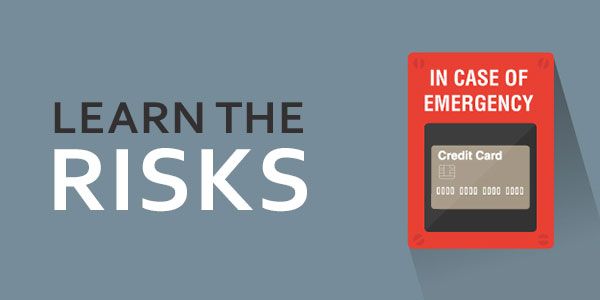
In life, unforeseen circumstances can strike at any moment, and being prepared is key to navigating through the storm. One crucial aspect of emergency preparedness is understanding how to use credit cards wisely in times of need. In this blog post, we’ll explore the strategic and responsible ways to leverage credit cards as a financial lifeline during emergencies.
1. Build a Financial Safety Net: Before diving into the world of credit cards, it’s essential to have a solid financial foundation. Establish an emergency fund that covers three to six months of living expenses. This fund acts as your first line of defense, reducing the immediate reliance on credit cards in times of crisis.
2. Know Your Credit Card Terms: Understanding the terms and conditions of your credit cards is paramount. Be aware of your credit limits, interest rates, and any associated fees. Familiarize yourself with the grace period for payments and the consequences of late payments. This knowledge empowers you to make informed decisions during emergencies.
3. Maintain a Low Credit Card Balance: Keeping a low credit card balance contributes to your overall financial stability. In emergencies, this ensures that you have room to maneuver within your credit limit. A lower balance also means less accrued interest, providing you with more financial flexibility when it matters most.
4. Have a Plan for Repayment: Using credit cards in emergencies is a short-term solution, not a long-term strategy. Develop a clear plan for repayment once the crisis has passed. Consider creating a budget that allocates funds specifically for paying off any credit card debt incurred during the emergency.
5. Explore Financial Assistance Programs: Many credit card issuers offer financial assistance programs for cardholders facing hardships. These programs may include temporary reductions in interest rates, waived fees, or extended repayment plans. Contact your credit card provider proactively to discuss your situation and explore available options.
6. Prioritize Essential Expenses: During an emergency, it’s crucial to prioritize essential expenses like housing, utilities, and groceries. Use your credit card for these necessities, but be mindful of unnecessary expenditures. This disciplined approach ensures that your credit resources are directed towards critical needs.
7. Seek Professional Advice: If the situation is complex or you’re unsure about the best course of action, don’t hesitate to seek professional financial advice. Financial counselors and advisors can provide tailored guidance based on your specific circumstances, helping you navigate through the challenges with confidence.
Remember, credit cards are a tool, not a solution. Utilize them wisely, and they can serve as a valuable resource during times of need. By combining strategic planning, financial literacy, and responsible credit card usage, you can enhance your emergency preparedness and safeguard your financial well-being.
Stay prepared, stay informed, and take control of your financial future.
